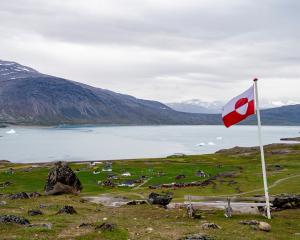
After private investigator Christopher Steele first claimed this tape existed, the former FBI director James Coney remarked:
"I honestly never thought these words would come out of my mouth, but I don’t know whether the current President of the United States was with prostitutes . . . in Moscow in 2013."
Mr Trump’s suck-up to Mr Putin in Helsinki last week had his own Republican senators worrying their president was hostage to personal blackmail. But Vlad the Good insisted: "We don’t have anything [on him] and there can’t be anything. Before he announced he was running for the presidency, he was of no interest to us."
Of no interest back then? Really? The Russians have a long history of investing spook time in compromising people who may one day be useful. Let me tell you a very personal story that relates to the Trump honey-trap problem. I readily admit it may seem fantastical. But, about the time Donald’s mate, Putin, signed up for his career with the KGB — in 1975, I believe — I received an odd invitation from Moscow.
The chief Soviet press attache to Canberra, a smartly suited operator with a charming pub manner, visited the Sydney HQ of Rupert Murdoch’s News Limited. He took the lift up to Mahogany Row, the seat of power, and offered the company a bells-and-whistles visit to his homeland to write tourism and human-interest articles about life in the Soviet Union.
There were two catches. The first was the destinations were Azerbaijan, Georgia, and Armenia, which sounds well and good today, but in 1975 these places were about as accessible as Ruatoria by canoe.
The second catch: News Limited would choose a name from a list of senior journalists the Soviets respectfully suggested might be entrusted with the assignment.
But the list was only two names — Keith Robbins, and myself. I was then a senior feature writer for The Australian. Keith, higher up the company ladder was, importantly, the Daily Telegraph racing editor, and the only way you would send Keith to Yerevan was if Bart Cummings had a starter in the Armenian Oaks.
So I got the nod for this distinctly fishy setup. In my defence, the chance to see behind the Soviet’s Iron Curtain was irresistible, even with doubts lurking at the back of my mind.
Daytimes I travelled, always accompanied by a driver, assistant, and the mission commander, Comrade Tatyana, who said she worked for the Russian tourism department, but had the bearing of a major.
On evenings off, I sat in the foreign currency bars that the Soviets used to restrict Westerners from polluting the locals. Soviets did not have the currency to enter, and the foreigners, many of them "high-ups," got spectacularly drunk — Russia did that to you — watched by a few remarkably beautiful prostitutes who were understood to work for both themselves and the State. In Azerbaijan, my hotel abutted the KGB’s Baku headquarters from which, the first night, I heard desperate screaming, the most disturbing, pitiful noise I’ve heard from a human. The next evening, the hotel’s foreigners’ bar was empty except for two naval officers, who had the currency, and joined me. They said they were submariners on a training course at the Caspian Fleet’s base. And boy, could "Ivan" and "Petyr" drink. When the bar closed at midnight, the officers decided we would party on in one of their rooms. When I eventually went to its bathroom, I returned to find Captain Petyr had vanished, and Captain Ivan had his zipper down, and an invitation.
I got out the door and to the foyer where, in the distance, I noticed Captain Petyr. He had not gone to his room, and was instead pacing the foyer, checking his watch. I hid, and after a few minutes, he took the lift back upstairs, where presumably he would barge in and catch Captain Ivan and the journalist in the act.
Was this all set up? Who knows? I certainly don’t. There are only two interpretations. The first: It was all perfectly innocent — some crazy Soviet bureaucracy decided to spend up on tourism to impossible destinations, and the drunken, homosexual naval officer was pure chance.
Or else? Well, the KGB did not just recruit at high level, they did speculative work where they saw potential down among the plebs. Was a senior journalist on the up worth a long-shot gamble? If the target was both unmarried and straight, the "buggertrap" would seem more worth trying. It had worked only a few years earlier, turning the London Telegraph’s Moscow chief.
I haven’t written this story until today because it is inconclusive, and the writer becomes vulnerable to seeming both self-important, and a fantasist. But then comes Trump.
Today in the United Kingdom, MI5 gives a booklet to business people visiting Moscow, warning them of state-managed honey traps. Comrade Vlad, KGB to his bootstraps, says that in 2013, Donald Trump, businessman, television mogul, and recently rejoined member of the Republican party, was of no intelligence interest because he was not actually running for the presidency.
Pull the other one.
- John Lapsley is an Arrowtown writer.











